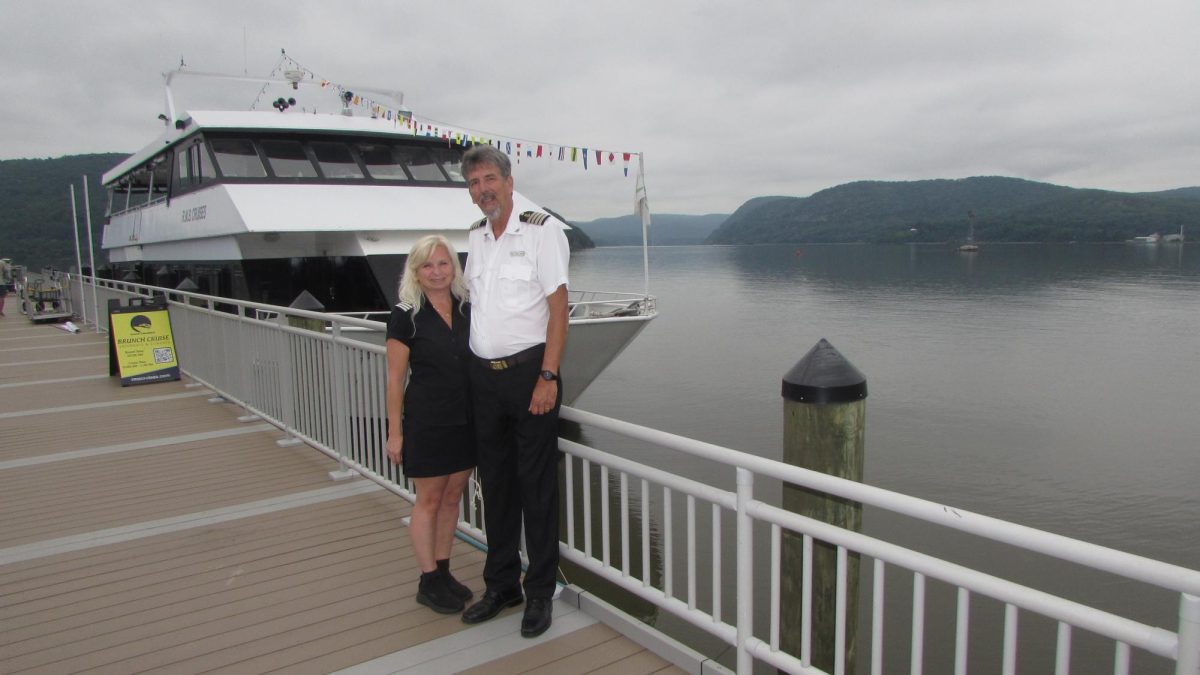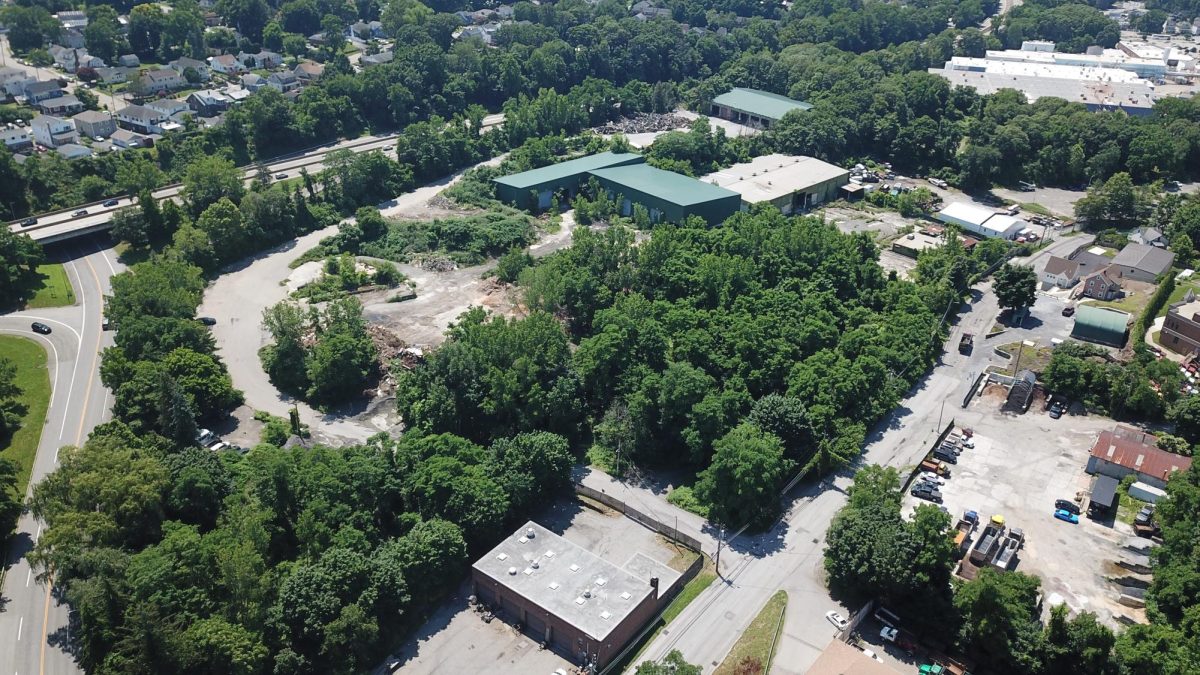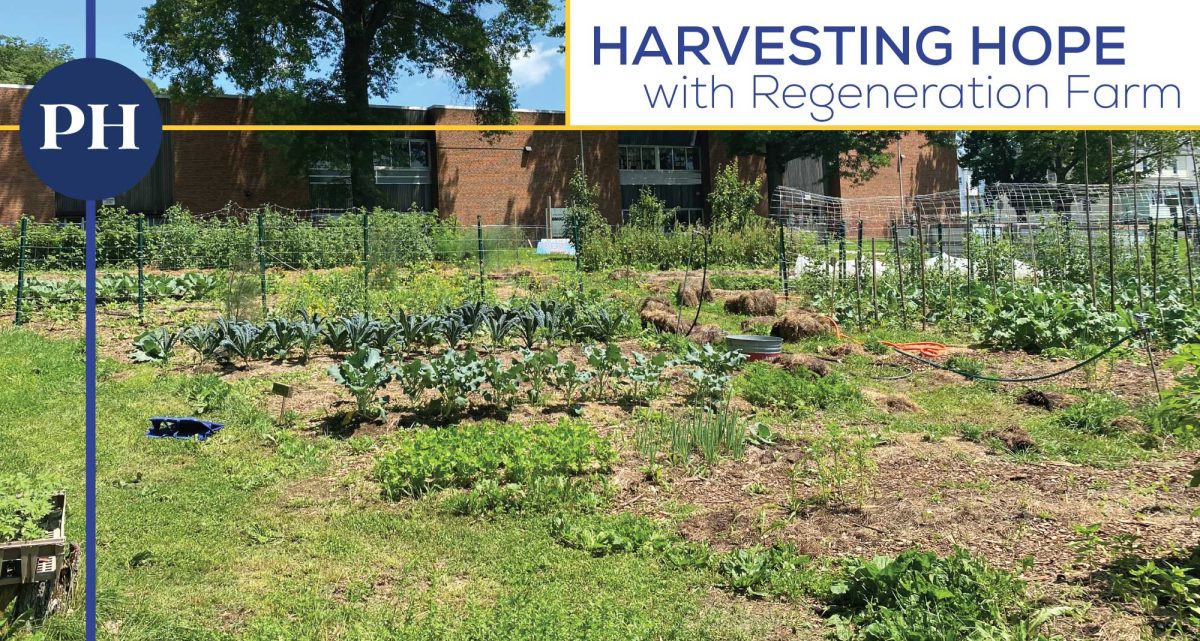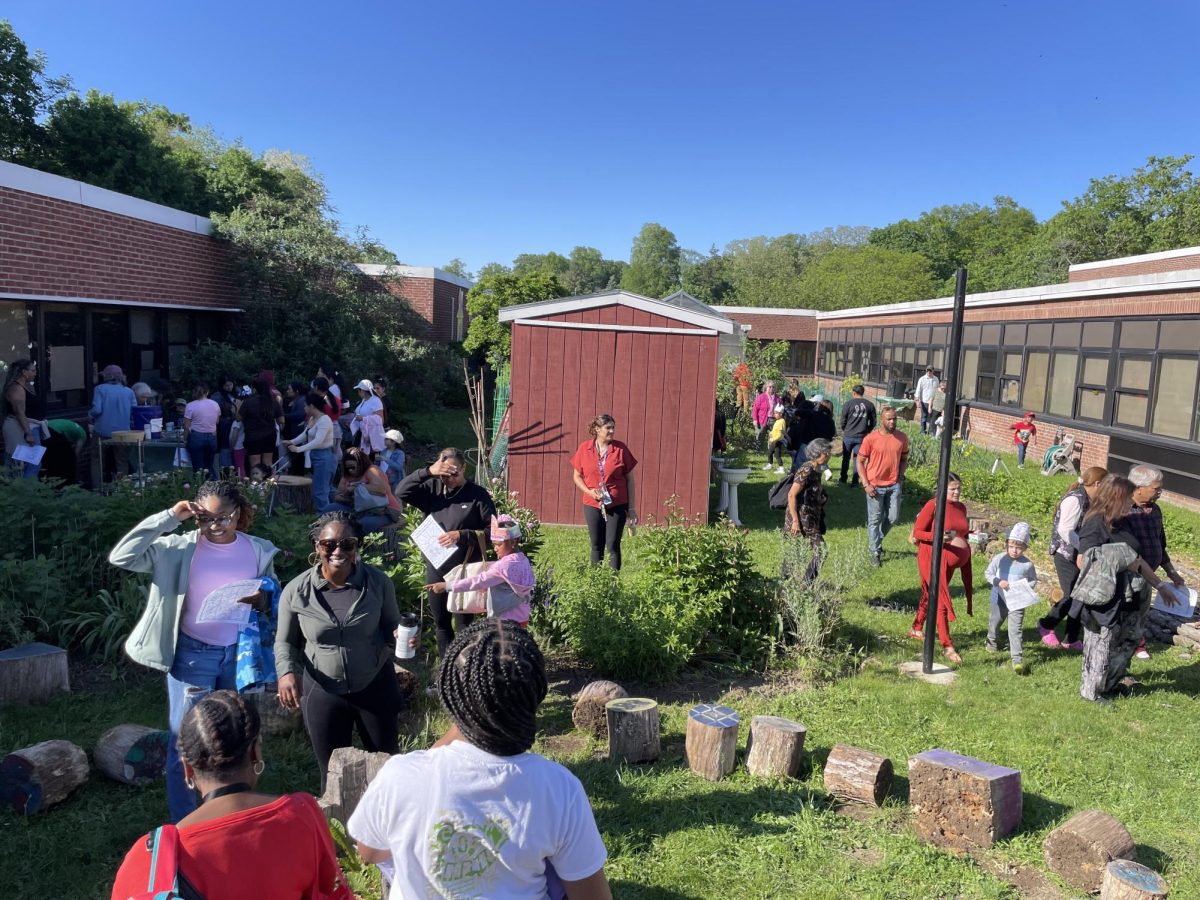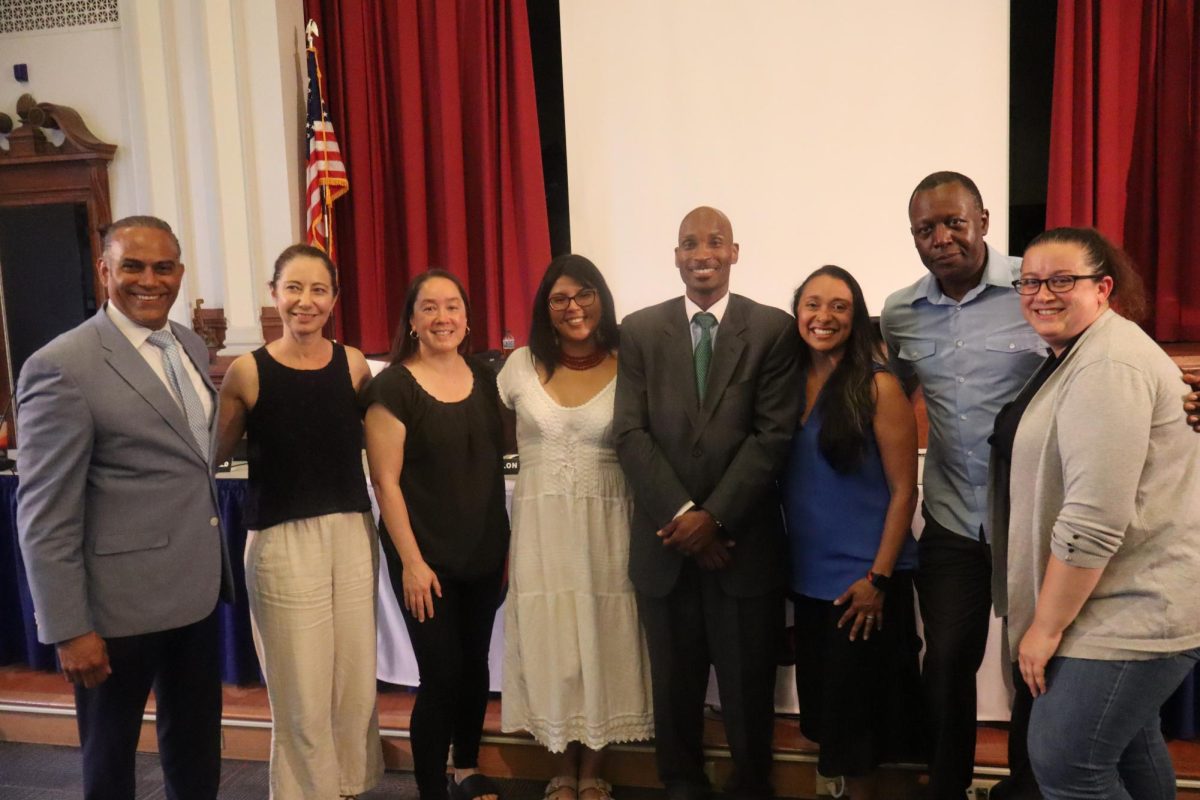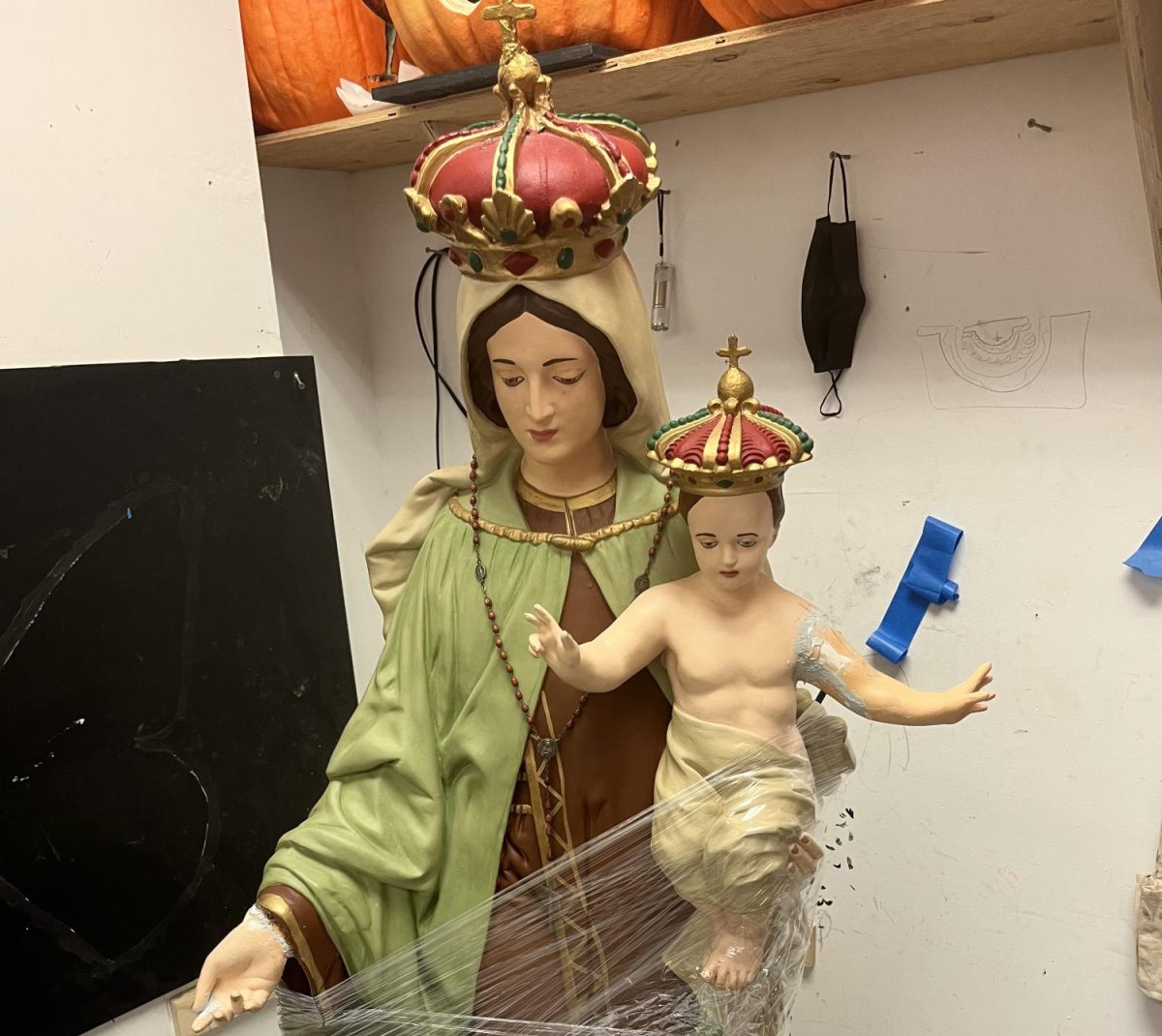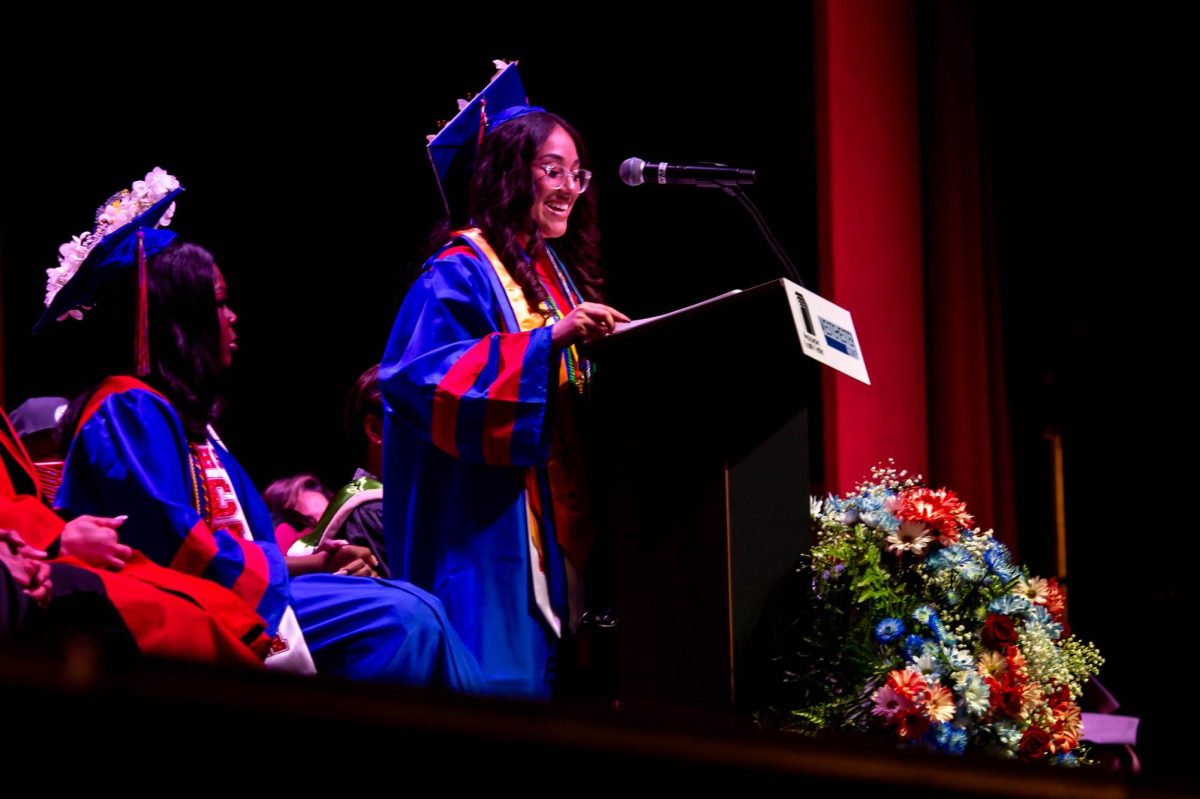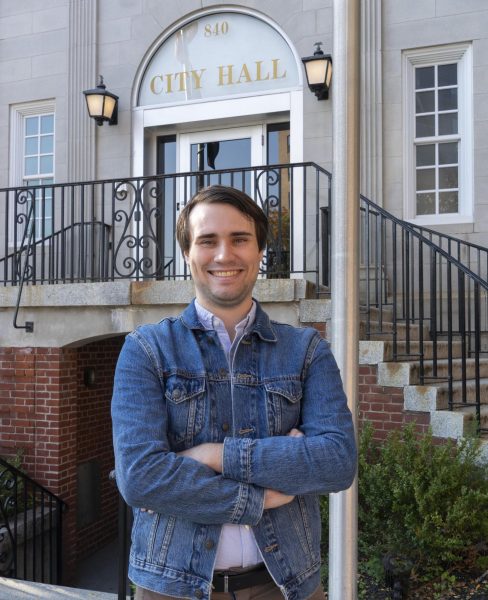The City of Peekskill celebrated the launch of the community’s first 24/7 food scrap composting site with a ribbon-cutting on Friday, April 25.
The site is located at the the Department of Public Works (DPW) Garage gate at South Street and Louisa Street and offers round-the-clock access for residents to dispose of food scraps.
Celebrating the launch were local leaders, environmental advocates and residents, including Mayor Vivian McKenzie, Assemblywoman Dana Levenberg, Westchester County Legislator Colin Smith, and members of the Common Council and the Peekskill Conservation Advisory Council (CAC).
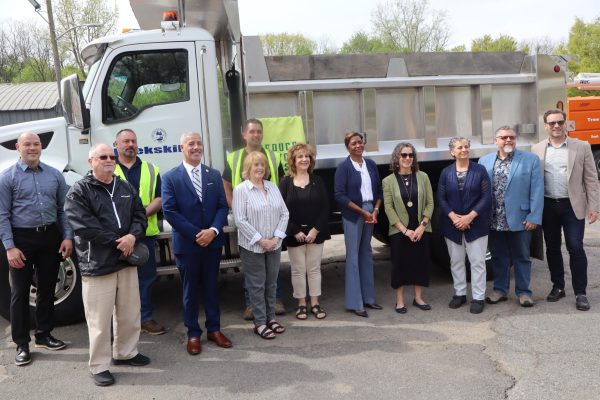
Dana Freedenfeld, a member of the CAC who planned the ribbon-cutting, said the composting site is more than just a bin.
“It’s a meaningful step to a healthier and more sustainable Peekskill by expanding access to composting or reducing landfill waste, cutting emissions, and giving every resident an opportunity to contribute to climate action right here in our city,” Freedenfeld said.
The drop-off site accepts all food, fruits and vegetables, meat and poultry (bones OK), fish and shellfish (shells OK), dairy products and eggshells, coffee grounds (paper filters OK), popsicle sticks and corks, paper towels, tissues and napkins, cut flowers, and tea bags (no staples).
It does not accept the following: plastic bags, packaging or dyed paper of any kind, stickers, twist ties, rubberbands, pet waste, baby wipes, foil, plastic, glass, metal, yard trimmings and tree debris, medical waste (syringes, gauze, bandages, etc.), electronic waste, chemicals or cleaning supplies.
Scraps are picked up once a week with all materials transported to a commercial composting facility where they are turned into nutrient-rich compost that can be used to support soil health and reduce chemical fertilizer use.
“These are important steps for us to be more sustainable within the City of Peekskill,” Mayor McKenzie said. “And what better way to begin than being able to get rid of food scraps in a way that’s going to compost and bring it back and reuse it in the community?”
The idea for the site came from the CAC and was made possible by project lead Kay Barthelmes and members Elaine Caccoma and Lise Prown of the CAC, the Common Council, the Planning Department, including Planner Peter Erwin, Emma Kaminski of the Center for Economic and Environmental Partnership, Anthony Carbone of Sustainable Materials Management and Westchester County.
The site itself was constructed by the DPW with designer Mark Fetzer, builders Joe Sinischalchi and Daniel Soto, as well as Juan Martinez, John Cursio, Brian Canero, and sanitation foreman Brian Cureton. Fetzer told the Peekskill Herald it was built in about a day and a half with freshly treated wood and corrugated metal.
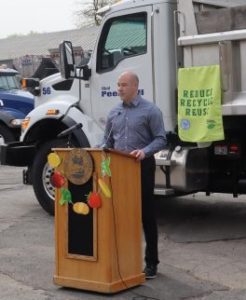
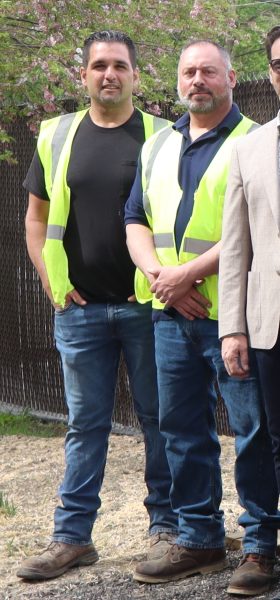
Christopher Gross, Director of DPW, explained that the site was moved to the gate of the garage so that anybody could have access to it at any time. The previous composting site was only open on Saturdays at 9 a.m. to noon.
Peekskill CAC President Jan Melillo said, “Today’s ribbon-cutting is a celebration of community. Composting is an environmental, economic and ethical win for all of us and we are already seeing our residents’ appreciation through increased participation in the program.”
Assemblywoman Levenberg commended the initiative, having helped bring a similar composting site to Ossining when she was town supervisor there. She said such sites helped to take food scraps out of solid waste streams, as well as educate the public about the necessity of doing so.
Levenberg said DPW would have to figure out how to handle traffic congestion from those coming to drop scraps off at the facility, which is situated along the road.
“I see that you have a couple of bins out there for collecting, which is so great because people can see them, drive by them,” Levenberg said. “But that’s gonna block the driveway very, very soon, because people are gonna be so excited about doing this food scraps and they’re gonna have a whole line of bins. And you’re gonna have to figure that out.”
County Legislator Smith emphasized the importance of food scrap and recycling.
“I think that as we move forward, we have to continually look for new ways, not only to reduce waste, but to reuse and recycle in a way that’s going to be beneficial to everyone,” Smith said. “Not just helpful to the environment but also beneficial to our citizens as well.”
[Correction: This article was edited on April 29 to note that Joe Sinischalchi is pictured with Mark Fetzer, not Daniel Soto as originally reported.]


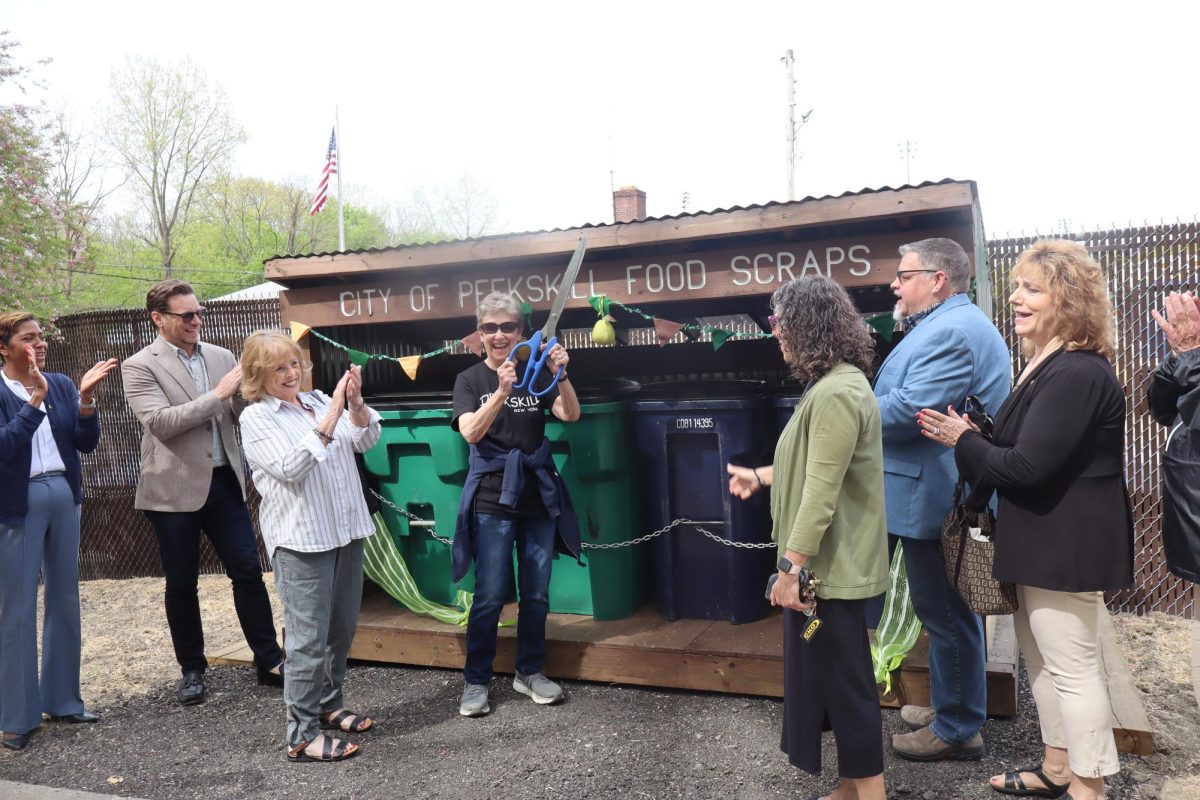

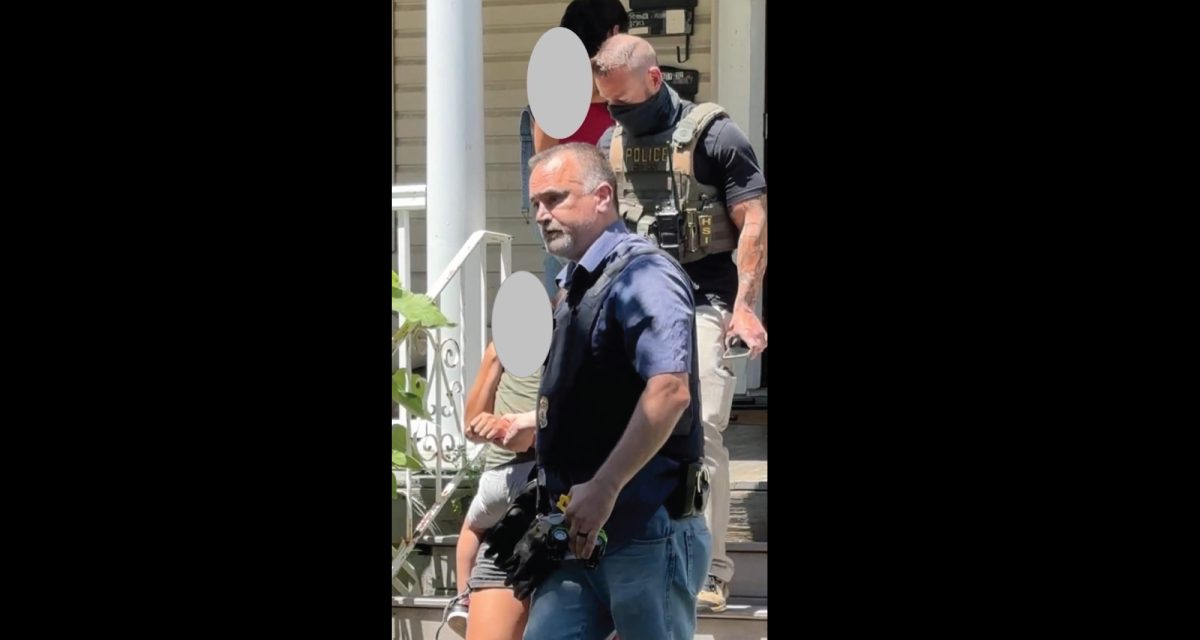
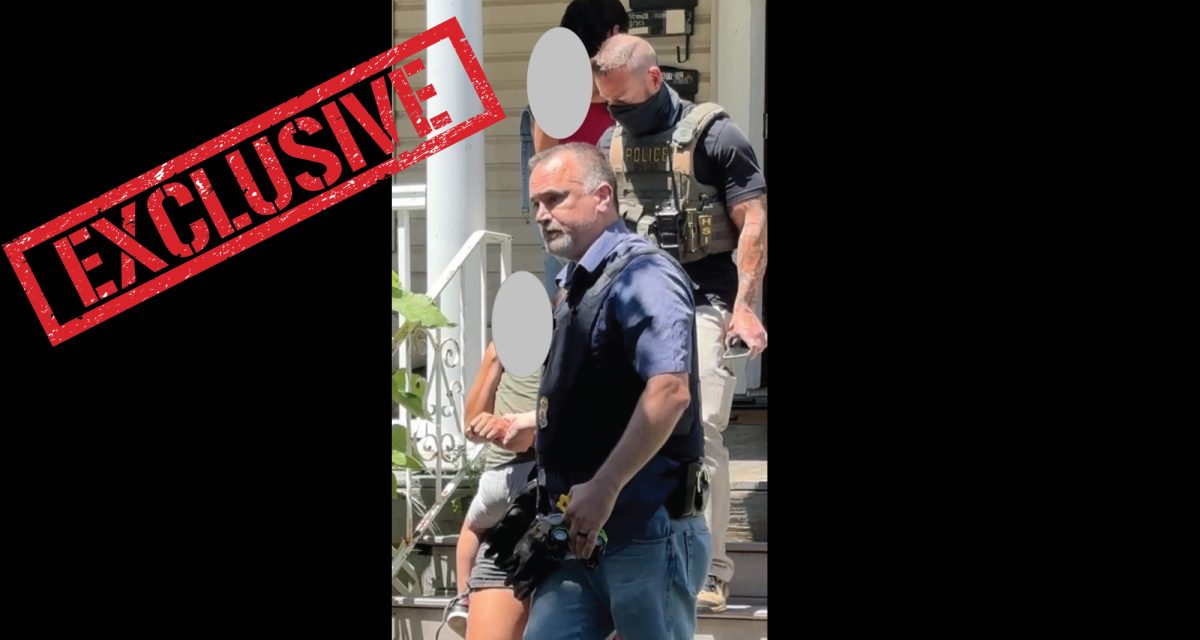

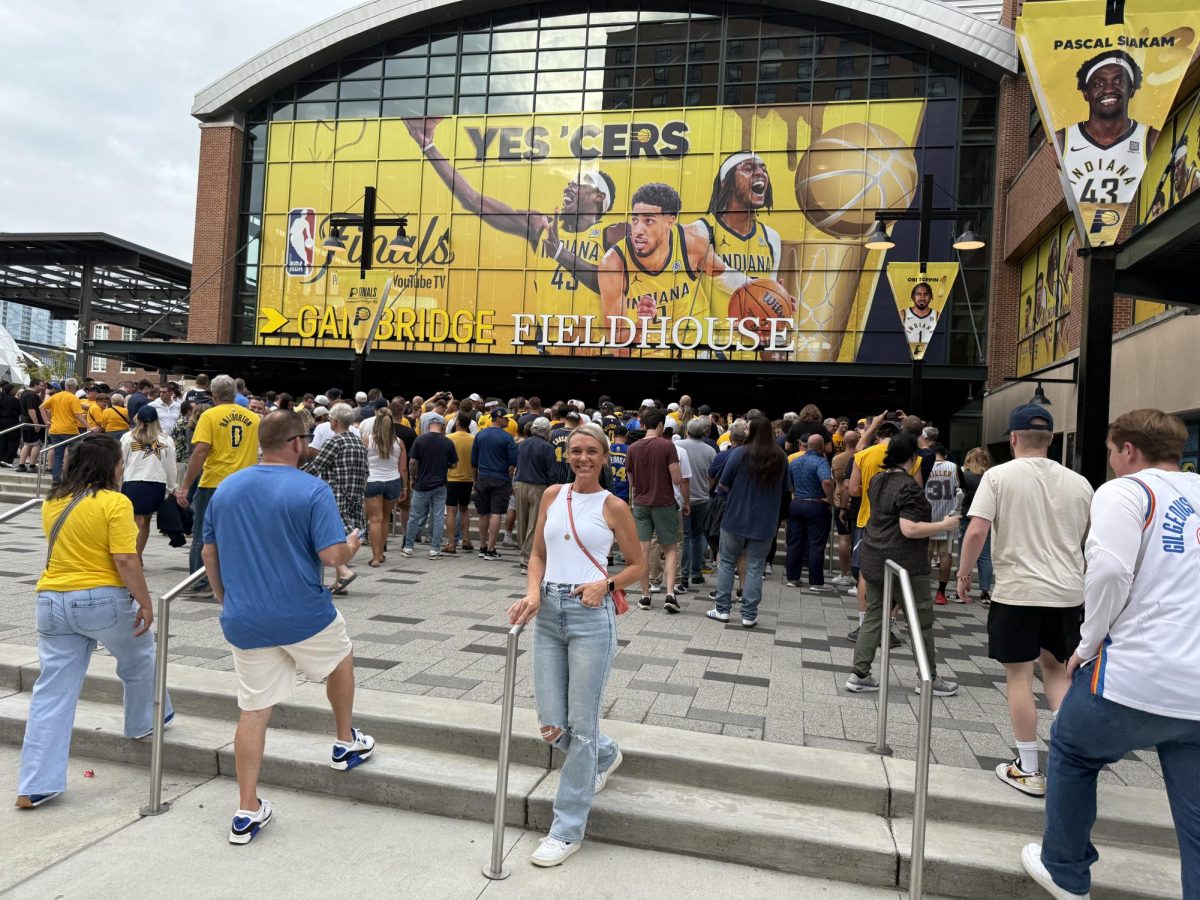
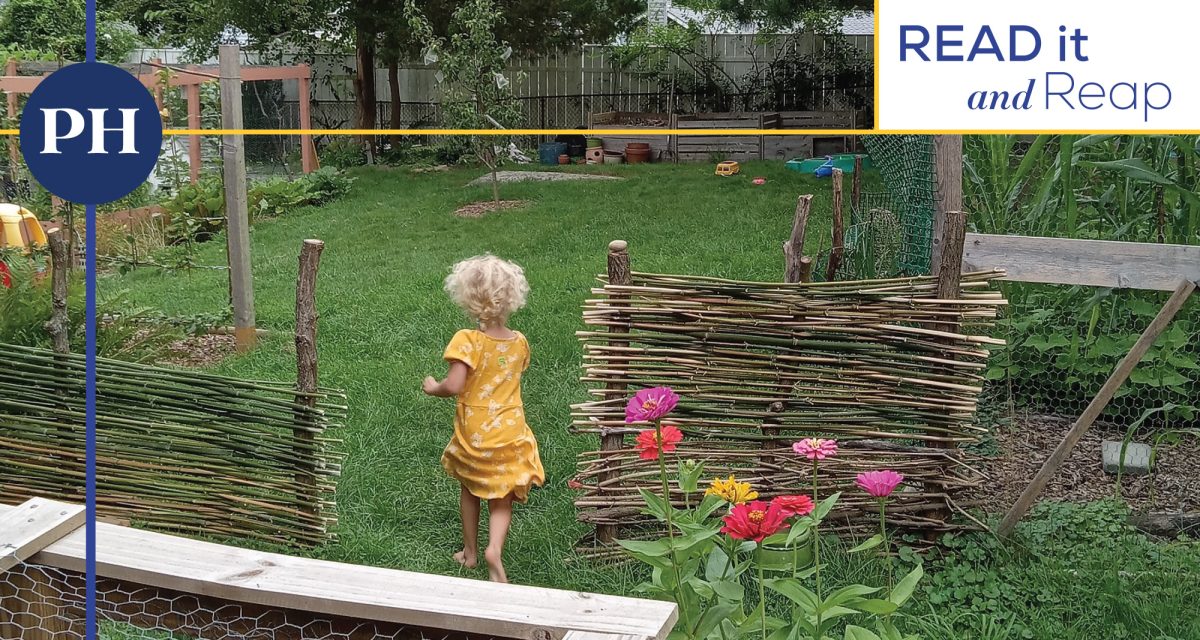
![Flyer for the annual Spaghetti Dinner hosted by RCC Nor-West in collaboration with the Rotary Club of Cortlandt Manor. (Maureen Winzig)]](https://peekskillherald.com/wp-content/uploads/2025/07/Flyer-2-1200x1200.jpg)
